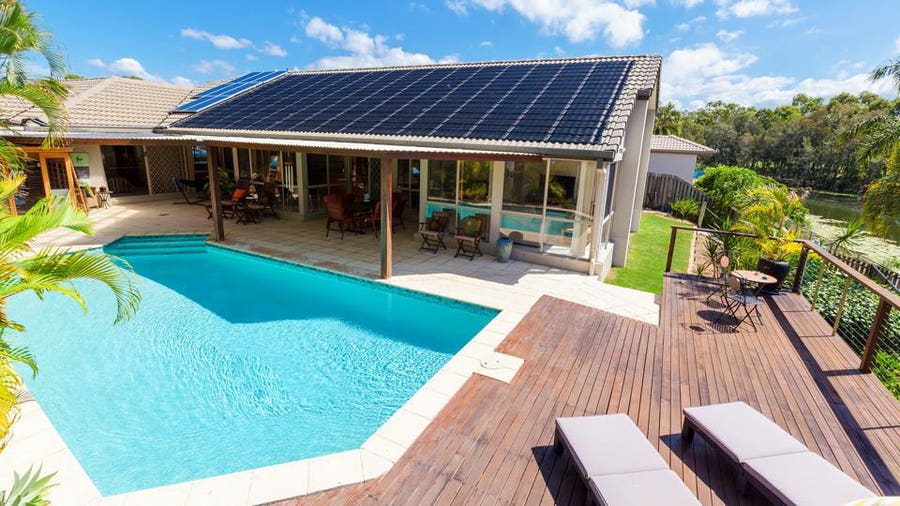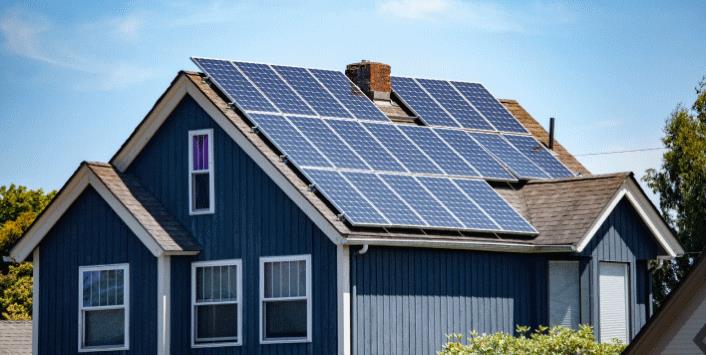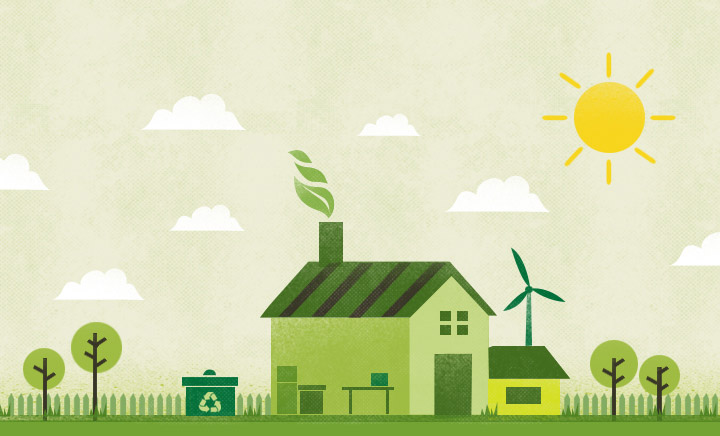
Are you interested in adopting a minimalist lifestyle that prioritizes sustainability and eco-friendliness? Look no further.
In this article, we will explore seven practical techniques that will help you live a greener life while embracing the principles of minimalism.
From conservation practices to sustainable waste reduction methods, enhancing energy efficiency at home to practicing ethical consumption habits, these tips will empower you to make conscious choices that benefit the environment.
Get ready to embark on a journey towards a sustainable and minimalist lifestyle.
Green Lifestyle Choices
Green lifestyle choices involve making conscious decisions to adopt environmentally friendly practices in our daily lives. One aspect of this is eco-friendly fashion, which refers to clothing and accessories that are made using sustainable materials and produced under ethical conditions. By choosing to support eco-friendly fashion brands, individuals can reduce their carbon footprint and contribute to a more sustainable fashion industry.
Another important aspect of green lifestyle choices is sustainable transportation. This involves opting for modes of transportation that have a lower impact on the environment, such as walking, cycling, or using public transportation. By reducing our reliance on cars and choosing more sustainable transportation options, we can decrease air pollution and greenhouse gas emissions.
Conservation Practices
Conservation practices are essential for living an eco-friendly and sustainable lifestyle.

Two important aspects of conservation include water-saving tips and using energy-efficient appliances.
Water-Saving Tips
Implementing efficient water-saving techniques is crucial for achieving an eco-friendly and sustainable lifestyle. By adopting water-saving techniques, individuals can reduce their water consumption and contribute to the conservation of this precious resource.
One practical method is rainwater harvesting, which involves collecting rainwater and storing it for various uses such as irrigation, flushing toilets, and washing clothes. This technique not only reduces the demand for treated water but also helps to prevent stormwater runoff, which can lead to pollution of water bodies.
Other water-saving tips include fixing leaky faucets and pipes, installing low-flow showerheads and toilets, and practicing responsible water usage habits such as turning off the tap while brushing teeth or washing dishes.
Energy-Efficient Appliances
To promote energy efficiency and sustainable living, individuals can adopt the use of energy-efficient appliances. One of the most effective ways to reduce energy consumption is by replacing traditional lighting with energy-efficient lighting options. LED bulbs, for example, use significantly less energy and have a longer lifespan compared to incandescent bulbs.
Additionally, incorporating renewable energy sources such as solar panels can further enhance the energy efficiency of appliances. By harnessing the power of the sun, individuals can generate their own clean and sustainable energy to power their appliances. This not only reduces reliance on fossil fuels but also helps to lower electricity bills.
Sustainable Waste Reduction Methods
Sustainable waste reduction methods are essential for minimizing our environmental impact.

One effective method is composting food scraps, which not only reduces landfill waste but also creates nutrient-rich soil for gardening.
Reusing packaging materials and recycling household waste are also simple yet impactful ways to reduce waste and promote a more sustainable lifestyle.
Composting Food Scraps
One effective method for reducing food waste and promoting sustainability is through the practice of composting food scraps. Composting benefits both the environment and the individual by diverting organic waste from landfills and creating nutrient-rich soil for gardening.
Composting food scraps not only reduces greenhouse gas emissions but also saves money on fertilizers and promotes healthy plant growth. To start composting, choose a compost bin or create a pile in your backyard. Remember to balance the ratio of carbon-rich and nitrogen-rich materials, such as dried leaves and vegetable scraps.
Turn the compost regularly to aerate it and speed up decomposition. Avoid adding meat, dairy, and oily foods to prevent pests and odors. With these composting tips, you can easily reduce waste and contribute to a more sustainable lifestyle.
Reusing Packaging Materials
Continuing the discussion on sustainable waste reduction methods, a practical approach to minimizing environmental impact is through the reuse of packaging materials.
As consumers, we often find ourselves accumulating various types of packaging, such as cardboard boxes, bubble wrap, and plastic containers.

Instead of throwing these materials away, we can explore creative upcycling ideas to give them a new purpose and extend their lifespan.
For example, cardboard boxes can be transformed into storage containers or organizers, while bubble wrap can be used for cushioning delicate items during transportation or as insulation for windows.
Recycling Household Waste
To effectively reduce household waste and promote environmental sustainability, it is important to implement recycling methods. Recycling not only helps conserve natural resources but also reduces pollution and saves energy.
Here are three practical ways to recycle household waste:
- Separate recyclables: Set up designated recycling bins for paper, plastic, glass, and metal. Sorting waste at the source makes the recycling process more efficient.
- Explore upcycling projects: Instead of throwing away items that can still be used, consider repurposing them through creative upcycling projects. Turn old jars into storage containers or transform worn-out clothes into reusable shopping bags.
- Reduce plastic waste: Plastic is a major contributor to environmental pollution. Opt for reusable alternatives such as cloth grocery bags, stainless steel water bottles, and glass food storage containers to reduce plastic waste.
Embracing Minimalism for a Greener Life
The adoption of a minimalist lifestyle is crucial for individuals seeking to lead a greener life. Minimalism can be applied to various aspects of our lives, including fashion and waste management.
Embracing minimalism in our fashion choices means opting for sustainable fashion brands that prioritize ethical production and use eco-friendly materials. This helps reduce the environmental impact of the fashion industry, which is known for its excessive consumption and waste.
Furthermore, minimalism can also be extended to our daily practices, such as zero waste living. By adopting a zero waste lifestyle, we aim to minimize the amount of waste we generate by reusing, recycling, and composting. This not only reduces our contribution to landfills but also conserves natural resources and reduces pollution.

Embracing minimalism empowers individuals to make conscious choices that align with their values and desire for a greener, more sustainable life.
Enhancing Energy Efficiency at Home
Building upon the principles of minimalism, it is essential to maximize energy efficiency in our homes for a sustainable and eco-friendly lifestyle. By incorporating smart home technology and passive solar design, we can significantly reduce our energy consumption and minimize our carbon footprint.
Here are three practical ways to enhance energy efficiency at home:
- Install smart thermostats: These devices allow you to control and schedule your heating and cooling systems, resulting in optimized energy usage and reduced utility bills.
- Upgrade to energy-efficient appliances: Choose appliances with high Energy Star ratings to ensure they consume less energy without sacrificing functionality.
- Utilize passive solar design: Orienting your home to maximize sunlight penetration and using materials that absorb and retain heat can reduce the need for artificial heating and cooling.
Practicing Ethical Consumption Habits
Practicing ethical consumption habits involves making conscious choices to limit our consumption and prioritize sustainable and ethical products.
One way to do this is by embracing ethical fashion. Instead of supporting fast fashion trends that harm the environment and exploit workers, opt for clothing made from eco-friendly materials and produced under fair labor conditions.
Sustainable transportation is another crucial aspect of ethical consumption habits. Consider using public transportation, carpooling, or cycling instead of relying solely on private cars. This reduces carbon emissions, decreases traffic congestion, and promotes a healthier lifestyle.
Additionally, choose products that are made from recycled materials or have minimal packaging.

Tips for a Sustainable and Minimalist Lifestyle
To achieve a sustainable and minimalist lifestyle, it is essential to prioritize conscious consumption and intentional living. Here are three tips to help you embrace this lifestyle:
- Embrace sustainable fashion: Opt for clothing made from eco-friendly materials like organic cotton or recycled fabrics. Invest in high-quality, timeless pieces that will last longer and avoid fast fashion trends.
- Practice eco-conscious travel: Choose eco-friendly modes of transportation like walking, biking, or public transportation whenever possible. When traveling, stay in eco-friendly accommodations and support local businesses that prioritize sustainability.
- Simplify your possessions: Declutter your living space and only keep items that bring you joy or serve a practical purpose. Consider borrowing or renting items you only need temporarily instead of buying them.
Frequently Asked Questions
What Are Some Simple Ways to Incorporate Eco-Friendly Practices Into My Daily Routine?
Incorporating eco-friendly practices into your daily routine can be achieved through simple actions such as eco-friendly shopping and sustainable transportation. These practices contribute to a more sustainable lifestyle and help protect the environment for future generations.
Reducing water waste and conserving energy are vital for reducing one's carbon footprint. Simple steps such as fixing leaks, using energy-saving appliances, and practicing mindful water usage can make a significant impact on sustainability efforts.
What Are Some Effective Strategies for Minimizing Waste in My Household?
Effective strategies for waste reduction in households include recycling, composting, and minimizing single-use items. By implementing these practices, individuals can significantly reduce their environmental impact and contribute to a more sustainable and eco-friendly lifestyle.
Are There Any Specific Tips for Adopting a Minimalist Lifestyle That Is Also Environmentally Friendly?
When adopting a minimalist lifestyle, it is important to consider its environmental impact. Minimalist decluttering can reduce waste, while sustainable fashion choices promote ethical and eco-friendly consumption.
How Can I Make My Home More Energy-Efficient Without Spending a Fortune on Renovations?
There are numerous energy-saving hacks and cost-effective green solutions that can be implemented in a home without the need for expensive renovations. These strategies can help improve energy efficiency and reduce utility costs.
 Family Craft ProjectsHome ImprovementCooking and BakingReuse and RecycleDIY GiftsEco-Friendly ProjectsDIY Home SolutionsSeasonal ActivitiesFun and GamesLearn TogetherPrivacy PolicyTerms And Conditions
Family Craft ProjectsHome ImprovementCooking and BakingReuse and RecycleDIY GiftsEco-Friendly ProjectsDIY Home SolutionsSeasonal ActivitiesFun and GamesLearn TogetherPrivacy PolicyTerms And Conditions

 Family Craft ProjectsHome ImprovementCooking and BakingReuse and RecycleDIY GiftsEco-Friendly ProjectsDIY Home SolutionsSeasonal ActivitiesFun and GamesLearn TogetherPrivacy PolicyTerms And Conditions
Family Craft ProjectsHome ImprovementCooking and BakingReuse and RecycleDIY GiftsEco-Friendly ProjectsDIY Home SolutionsSeasonal ActivitiesFun and GamesLearn TogetherPrivacy PolicyTerms And Conditions
